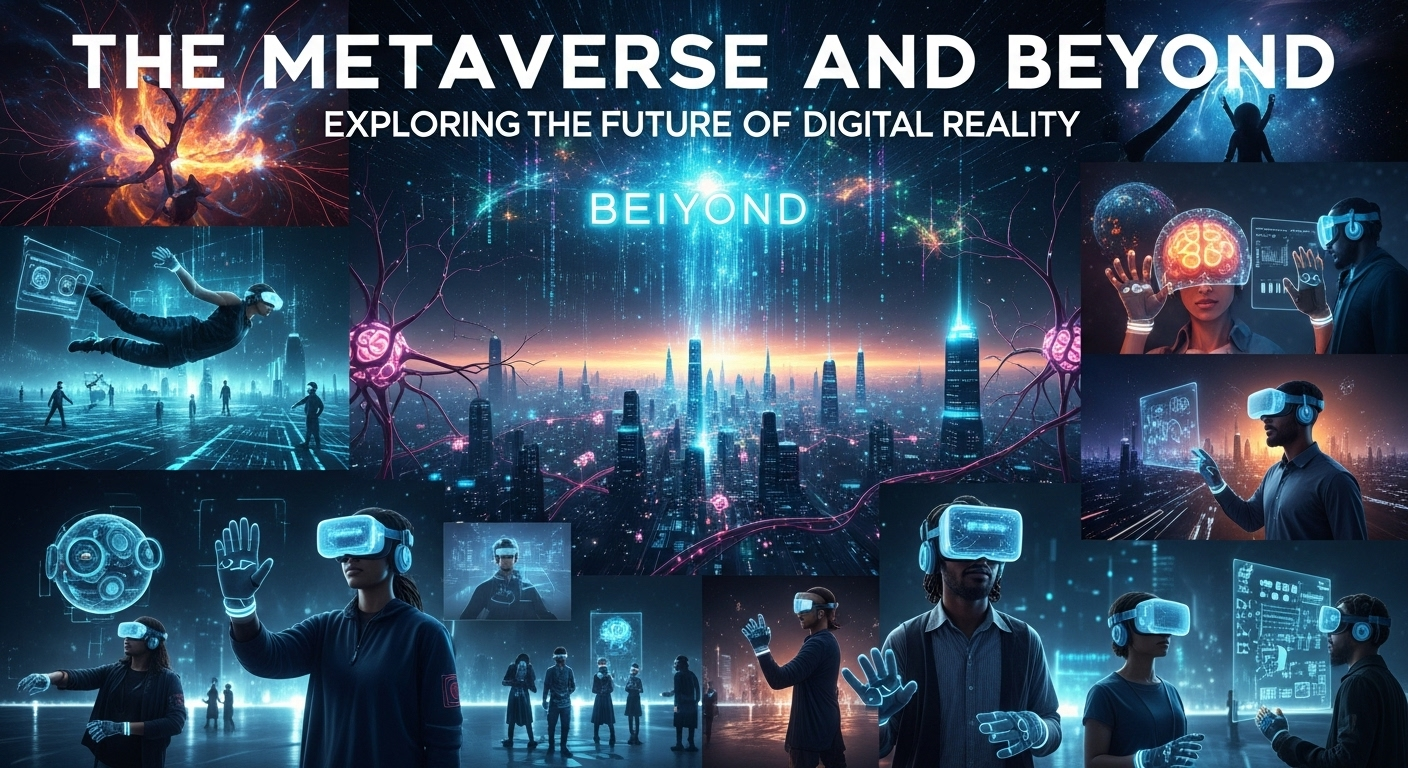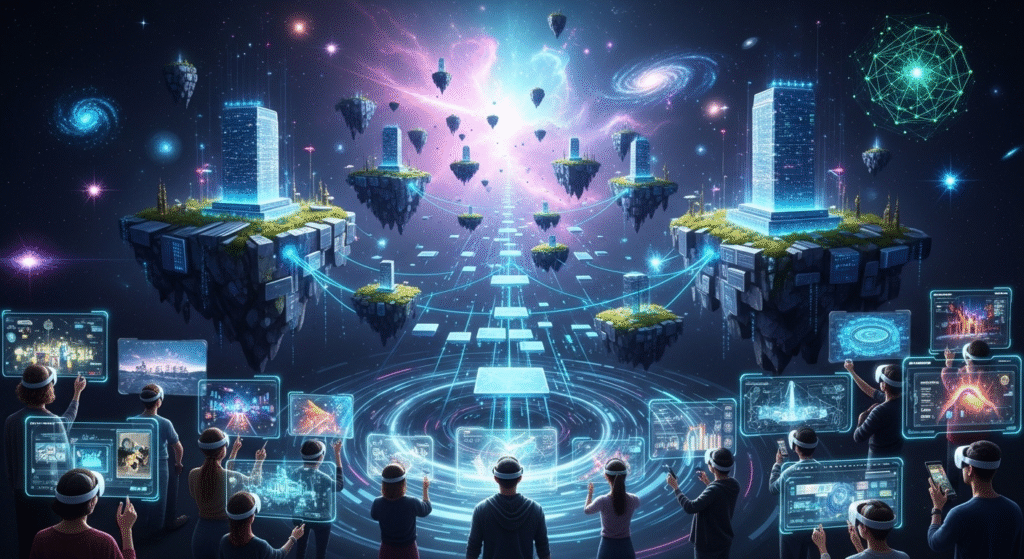Okay, let’s be real. The metaverse. It’s a term that’s been thrown around so much lately, it’s almost lost all meaning. Remember when “the cloud” was the buzzword everyone was obsessed with? Feels a bit like that. But… underneath all the hype, there’s something genuinely fascinating going on. A potential shift in how we interact with technology, with each other, and even with reality itself.
I initially thought it was just VR gaming taken to the extreme. And sure, that’s part of it. You know, strapping on a headset and battling dragons or building virtual empires. But it’s so much bigger than that. Think about it: a persistent, shared digital space where you can work, socialize, create, and well, pretty much live a second life. A lot of the gaming companies are thinking the same thing. Crazy Games is an online game site that includes some metaverse games! I mean, the possibilities are kinda mind-blowing, right?
The Metaverse: Not Just a Game

So, let’s ditch the idea that the metaverse is just about gaming. It’s a platform. It’s an evolution of the internet, and its future applications are wild. Imagine attending a conference in a virtual auditorium, complete with networking events and interactive sessions. Or collaborating with colleagues on a 3D design project in a shared virtual workspace. Or even visiting a virtual version of a museum, exploring artifacts from around the world from the comfort of your couch. The frustrating thing about this topic is the sheer scale of it all, the scope of future use cases is really only limited to imagination.
But here’s the thing. To achieve all of that, we need more than just cool VR headsets and faster internet. We need to build the infrastructure. We need the platforms, the standards, and the creative tools that will allow people to build and populate these virtual worlds. And that’s where things get really interesting.
Digital Ownership and the Creator Economy
I’ve got to admit, this part fascinates me. The rise of NFTs (Non-Fungible Tokens) and blockchain technology is paving the way for a whole new creator economy within the metaverse. Artists can create and sell digital artwork directly to collectors, musicians can release exclusive tracks to their fans, and developers can build and monetize virtual experiences.
Think about it this way: it is a paradigm shift from the existing Web 2.0 internet to something more decentralized where creators can control their work. People will now have the freedom to create, own, and sell digital assets in a way that wasn’t possible before. And that could have profound implications for everything from art and entertainment to education and commerce. I remember when this approach first emerged and it was exciting, but the current scale is just mind blowing. It is revolutionary
Of course, there are challenges. Big challenges. Concerns about security, privacy, and regulation are very real. And the environmental impact of blockchain technology is something we need to address head-on. But I keep coming back to this point because it’s crucial: the potential for democratizing creativity and empowering creators is too significant to ignore.
Navigating the Ethical Landscape of Digital Reality
Okay, let’s get into the stickier stuff. Because a world where digital reality blurs the line with the physical world? That’s going to raise some serious ethical questions. Think about deepfakes, for instance. We already struggle with misinformation online. Imagine a world where it’s virtually impossible to tell what’s real and what’s not. It gets pretty scary pretty fast.
And then there’s the issue of identity. In a metaverse where you can be anyone you want to be, how do we ensure accountability? How do we prevent harassment and abuse? These aren’t just hypothetical concerns. They’re issues we need to grapple with now, before the metaverse becomes fully integrated into our lives. Actually, that’s not quite right. It’s already being integrated. I saw an article on the Microsoft Planetary Computer that goes to show just how much these things are changing.
But I have to say, there’s an element of excitement mixed with the unease. The potential to create new forms of expression, new forms of connection, is incredibly powerful. It is a potential that cannot be ignored. However, we just have to be mindful, is all.
FAQ: The Metaverse and Beyond
What exactly is the metaverse anyway?
That’s the million-dollar question, isn’t it? There’s no single, universally accepted definition. But broadly speaking, the metaverse is a persistent, shared, 3D virtual world or collection of worlds that are interoperable, meaning you can move seamlessly between them. It’s meant to feel immersive, social, and often incorporates elements of gaming, social media, and e-commerce. Think of it as the next iteration of the internet, one that’s more interactive and engaging than what we’re used to.
How will I actually use the metaverse?
That really depends on what you’re interested in! Want to attend a virtual concert? Explore a historical site from your living room? Collaborate with colleagues on a 3D design? The possibilities are endless. Primarily, you’ll access the metaverse through a VR headset or augmented reality glasses, but it can also be accessed through traditional devices like computers and smartphones. Ultimately, it’s about creating a more immersive and engaging digital experience.
Is the metaverse just hype, or is it here to stay?
Okay, this is where I’ll admit to a little bit of bias. I think it’s here to stay, but probably not in the exact form that’s being hyped right now. There’s a lot of experimentation and innovation happening in this space, and some of it will inevitably fail. But the underlying technologies and the desire for more immersive digital experiences are real. The metaverse may evolve into something different than what we expect, but I believe it will become an integral part of our lives in the years to come.
How do I know if my kids are spending too much time in the metaverse?
This is a valid concern. Just like with any form of technology, moderation is key. The metaverse should supplement real-world experiences, not replace them. Encourage your kids to participate in physical activities, spend time with friends and family, and pursue hobbies outside of the digital world. Keep an open dialogue about their experiences in the metaverse, and make sure they understand the importance of online safety and responsible digital citizenship. If you see signs of addiction or social isolation, it’s time to set some boundaries.
What are the biggest concerns about the metaverse and beyond: exploring the future of digital reality?
Privacy, security, and accessibility are major concerns. How do we protect our personal data in a virtual world? How do we prevent harassment and abuse? And how do we ensure that the metaverse is accessible to everyone, regardless of their socioeconomic status or physical abilities? These are complex questions that require thoughtful solutions. We need to develop ethical guidelines and regulations that address these concerns before the metaverse becomes fully mainstream.



